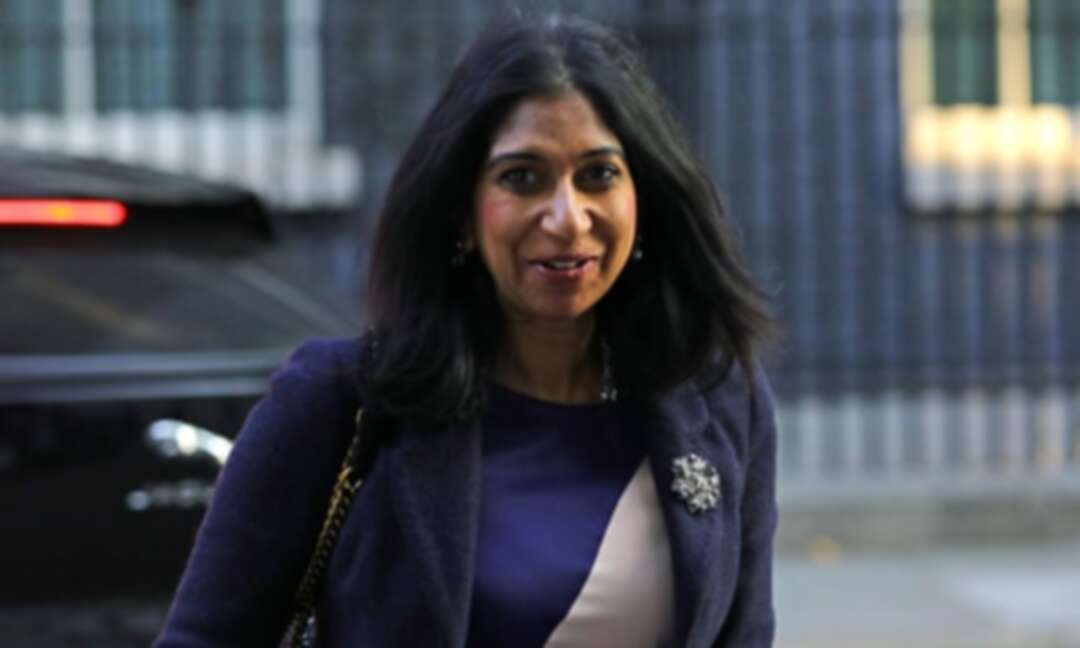-
Labour backs bill giving ministers longer maternity leave

Party support conditional on government pledging to end discrimination over pay and leave
Labour will back measures allowing six-month maternity leave for cabinet ministers through a bill rushed through parliament later on Thursday but will demand a commitment to tackle maternity protections for women during the pandemic as a price for its support.
The legislation has provoked a backlash among MPs and campaigners because it will offer six months’ paid leave only to ministers – not backbenchers – and will give ministers far more generous rights than the general public.
The bill will speed through parliament in a day to ensure provision is in place for the attorney general, Suella Braverman, who is expected to give birth within weeks.
Labour will support the ministerial and other maternity allowances bill but sources said there would be a number of concessions from the minister Penny Mordaunt pledging immediate action on maternity discrimination.
The government committed in 2019 to strengthening protections for pregnant women in the employment bill, on which there has been little progress. It comes amid concerns that pregnant women have been disproportionately selected for redundancy during the pandemic. Others were unlawfully placed on sick pay when pregnant women were advised to shield, affecting their maternity entitlement.The bill promises to extend redundancy protection to pregnant employees and maternity returners and introduce leave for neonatal care.
Cat Smith MP, Labour’s shadow minister for democracy, said: “The speed with which the government is acting to make sure the attorney general can take maternity leave is in stark contrast to its failure to support pregnant women facing discrimination and hardship throughout this pandemic.
“It is right that the attorney general is granted maternity rights – but the government must not turn the clock back on employment rights for women and leave pregnant mothers without the basic protections they need.”
The government hopes to use parliamentary procedure to avoid amendments on the bill, a move expected to be backed by Labour.
Mordaunt is understood to have told concerned MPs that there is not enough time before Braverman’s due date to pass more complex arrangements and the government has threatened it will pull the bill entirely if opposition MPs try to amend it.
However, Stella Creasy, the senior Labour MP who is also in the early stages of pregnancy, is threatening to take the government to court for discrimination for giving better rights to ministers than MPs.
Creasy, the MP for Walthamstow, said she had been given legal advice that the move could be a breach of human rights law – of a right to equal treatment and the right to a family life.
She said she “does not begrudge” Braverman her maternity leave but she would be prepared to make a legal case that she had been discriminated against as a backbench MP, with fewer rights than more senior colleagues. She said it would be a case intended to highlight the discrimination faced by pregnant women across all sectors.
A coalition of a dozen women’s and charitable organisations, led by the Centenary Action Group, which campaigns on women’s representation and participation in politics, wrote to the government warning that if the bill passed without any further reforms, it would “set a precedent of a two-tier system of maternity and paternity rights”.
The letter added that while it was “welcome” that government ministers would get six months’ maternity leave on full pay, “statutory maternity pay and maternity allowance is just £151.20 per week, equivalent to about half of the national minimum wage”.
source: Jessica Elgot
Levant
You May Also Like
Popular Posts
Caricature
BENEFIT Sponsors BuildHer...
- April 23, 2025
BENEFIT, the Kingdom’s innovator and leading company in Fintech and electronic financial transactions service, has sponsored the BuildHer CityHack 2025 Hackathon, a two-day event spearheaded by the College of Engineering and Technology at the Royal University for Women (RUW).
Aimed at secondary school students, the event brought together a distinguished group of academic professionals and technology experts to mentor and inspire young participants.
More than 100 high school students from across the Kingdom of Bahrain took part in the hackathon, which featured an intensive programme of training workshops and hands-on sessions. These activities were tailored to enhance participants’ critical thinking, collaborative problem-solving, and team-building capabilities, while also encouraging the development of practical and sustainable solutions to contemporary challenges using modern technological tools.
BENEFIT’s Chief Executive Mr. Abdulwahed AlJanahi, commented: “Our support for this educational hackathon reflects our long-term strategic vision to nurture the talents of emerging national youth and empower the next generation of accomplished female leaders in technology. By fostering creativity and innovation, we aim to contribute meaningfully to Bahrain’s comprehensive development goals and align with the aspirations outlined in the Kingdom’s Vision 2030—an ambition in which BENEFIT plays a central role.”
Professor Riyadh Yousif Hamzah, President of the Royal University for Women, commented: “This initiative reflects our commitment to advancing women in STEM fields. We're cultivating a generation of creative, solution-driven female leaders who will drive national development. Our partnership with BENEFIT exemplifies the powerful synergy between academia and private sector in supporting educational innovation.”
Hanan Abdulla Hasan, Senior Manager, PR & Communication at BENEFIT, said: “We are honoured to collaborate with RUW in supporting this remarkable technology-focused event. It highlights our commitment to social responsibility, and our ongoing efforts to enhance the digital and innovation capabilities of young Bahraini women and foster their ability to harness technological tools in the service of a smarter, more sustainable future.”
For his part, Dr. Humam ElAgha, Acting Dean of the College of Engineering and Technology at the University, said: “BuildHer CityHack 2025 embodies our hands-on approach to education. By tackling real-world problems through creative thinking and sustainable solutions, we're preparing women to thrive in the knowledge economy – a cornerstone of the University's vision.”
opinion
Report
ads
Newsletter
Subscribe to our mailing list to get the new updates!






















